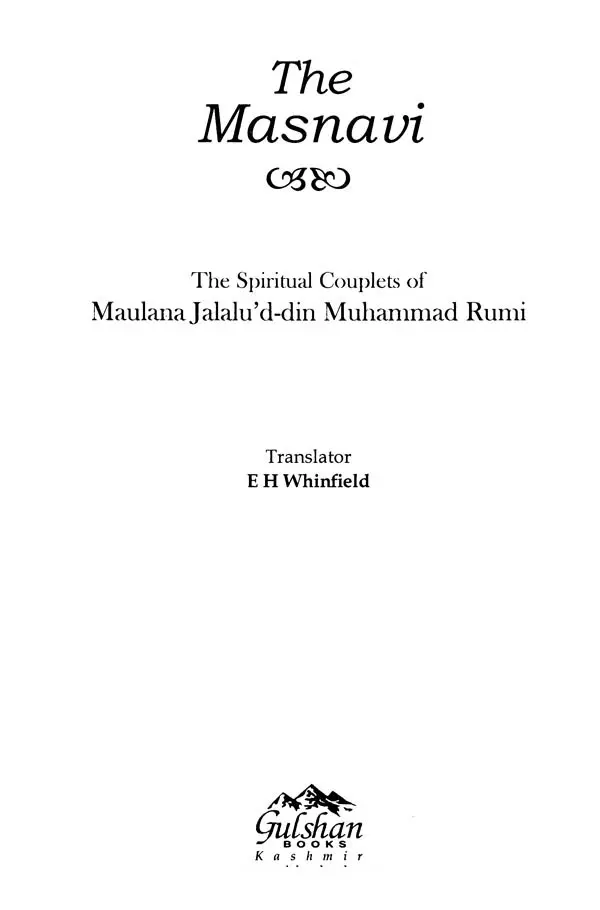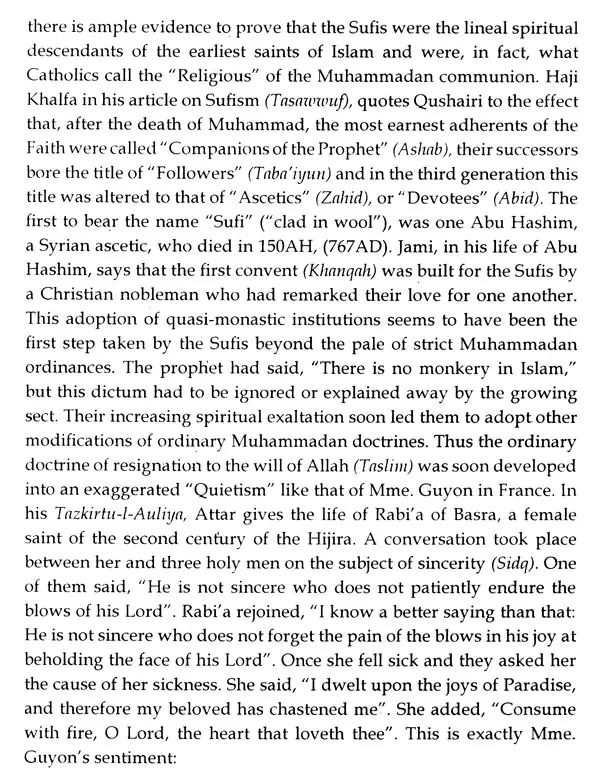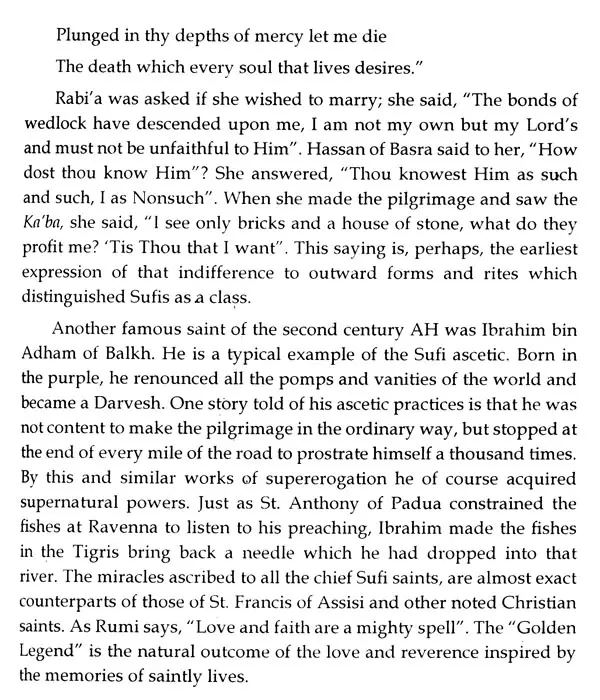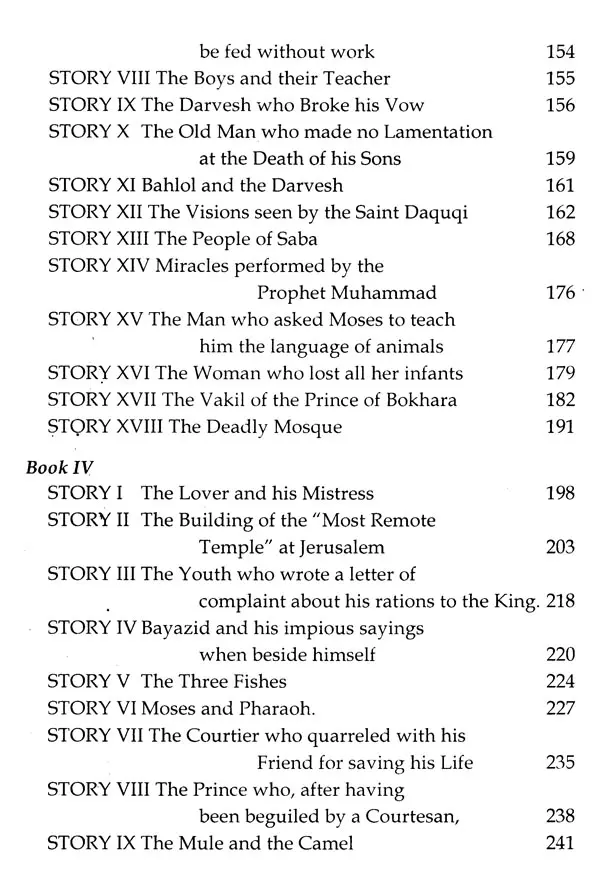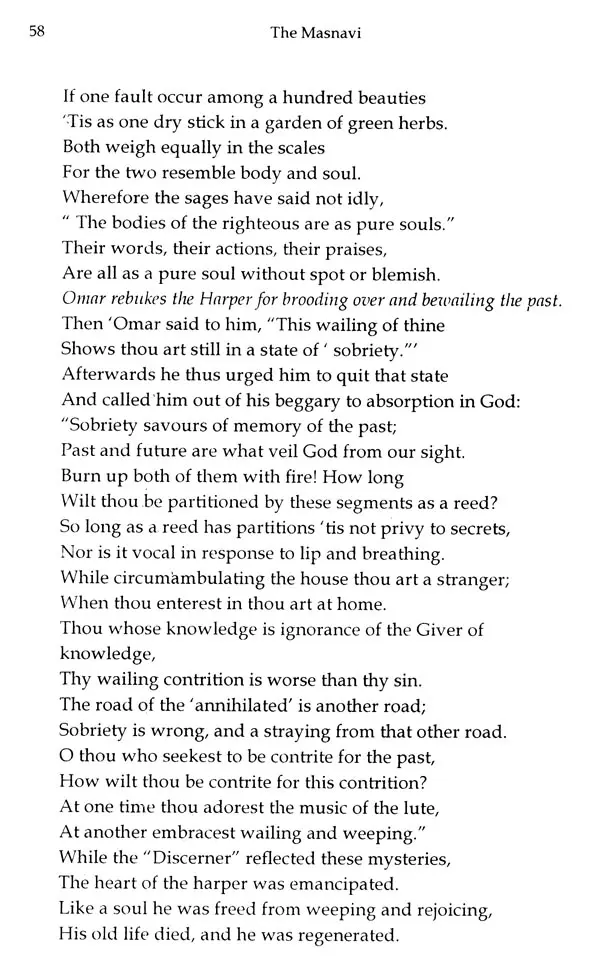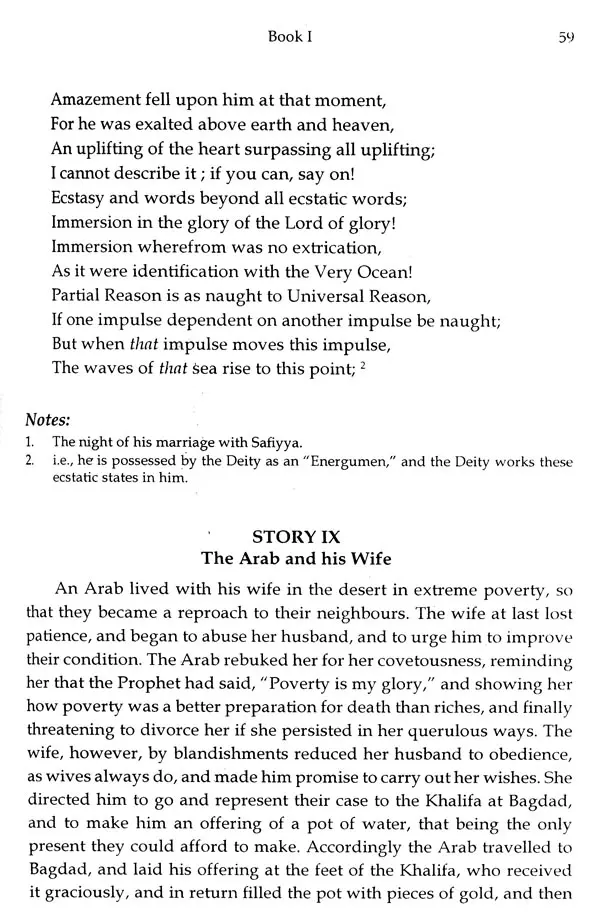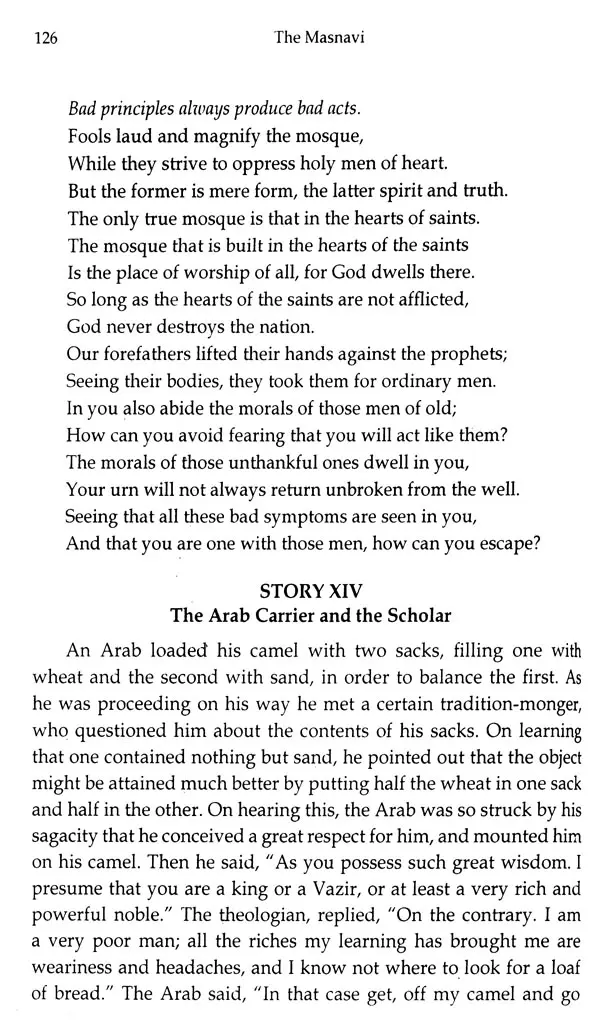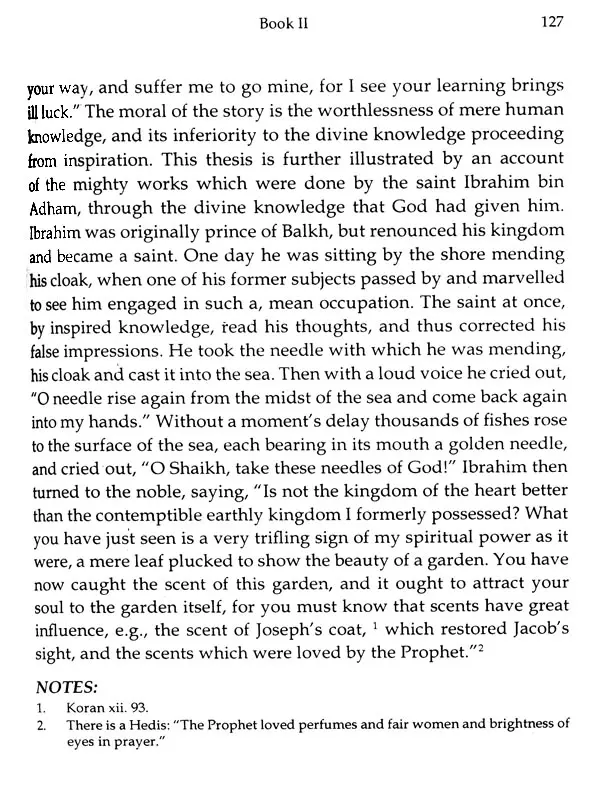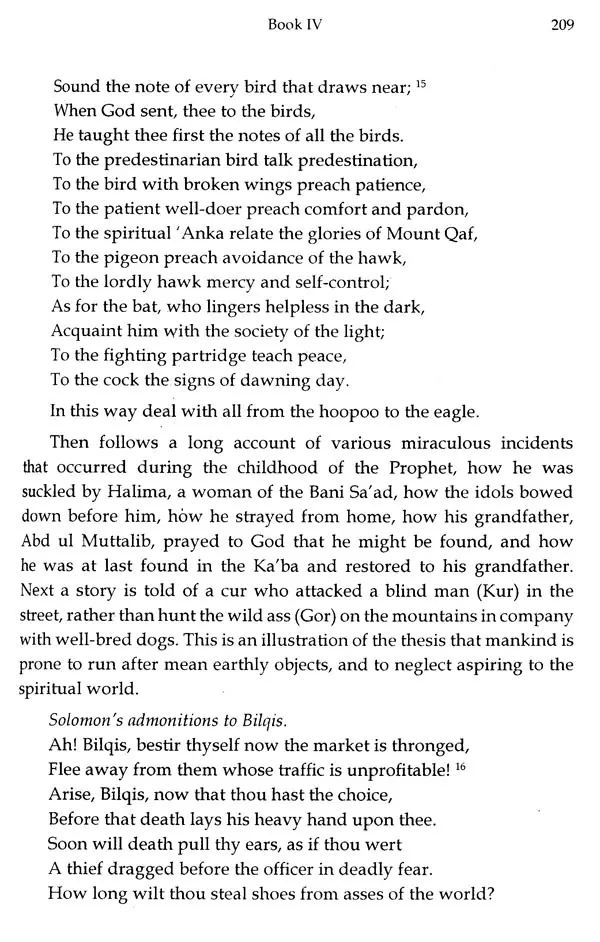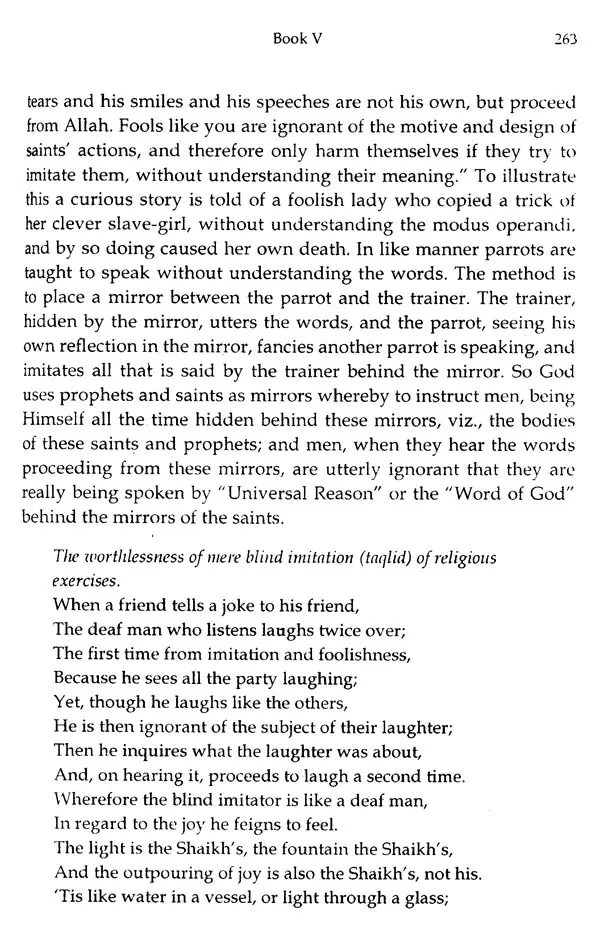
The Masnavi- The Spiritual Couplets of Maulana Jalalu'd-din Muhammad Rumi
Book Specification
| Item Code: | UAI736 |
| Author: | E.H. Whinfield |
| Publisher: | Gulshan Books, Kashmir |
| Language: | English |
| Edition: | 2015 |
| ISBN: | 9788183393713 |
| Pages: | 356 |
| Cover: | HARDCOVER |
| Other Details | 10.00 X 7.00 inch |
| Weight | 670 gm |
Book Description
The Masnavi is a series of six books of poetry that together amount to around 25,000 verses or 50,000 lines. It is a spiritual writing that teaches Sufis how to reach their goal of being in true love with God. The title Masnavi-/ Ma'navi means "Rhyming Couplets of Profound Spiritual Meaning." The Masnavi is a poetic collection of rambling anecdotes and stories derived from the Quran, habit sources, and everyday tales. Stories are. told to illustrate a point and each moral is discussed in detail. It incorporates a variety of Islamic wisdom but primarily focuses on emphasizing inward personal Sufi interpretation. This work by Balkhi is referred to as a "sober" Sufi text. It reasonably presents the various dimensions of Sufi spiritual life and advises disciples on their spiritual paths. "More generally, it is aimed at anyone who has time to sit down and ponder the meaning of life and existence The Masnavi was a Sufi masterpiece started during the final years of Rumi's life. He began dictating the first book around the age of 54 around the year 1258 and continued composing verses until his death in 1273. The sixth and final book would remain incomplete.
It is documented that Rumi began dictating the verses of the Masnavi at the request of his treasured disciple, Husam ai-Din Chalabi, who observed that many of Rumi's followers dutifully read the works of Sana'i and 'Attar.
Thus, Rumi began creating a work in the didactic style of Sana'i and 'Attar to complement his other poetry. These men met regularly in meetings where Rumi would deliver the verses and Chalabi would record it and recite back to him. During the final years of Rumi's life, the Masnavi was being created.
Each book consists of about 4,000 verses and contains its own prose introduction and prologue.
Considering there are no epilogues, one must read the preceding volumes to fully benefit from the wisdom presented by Rumi.
Book's Contents and Sample Pages
